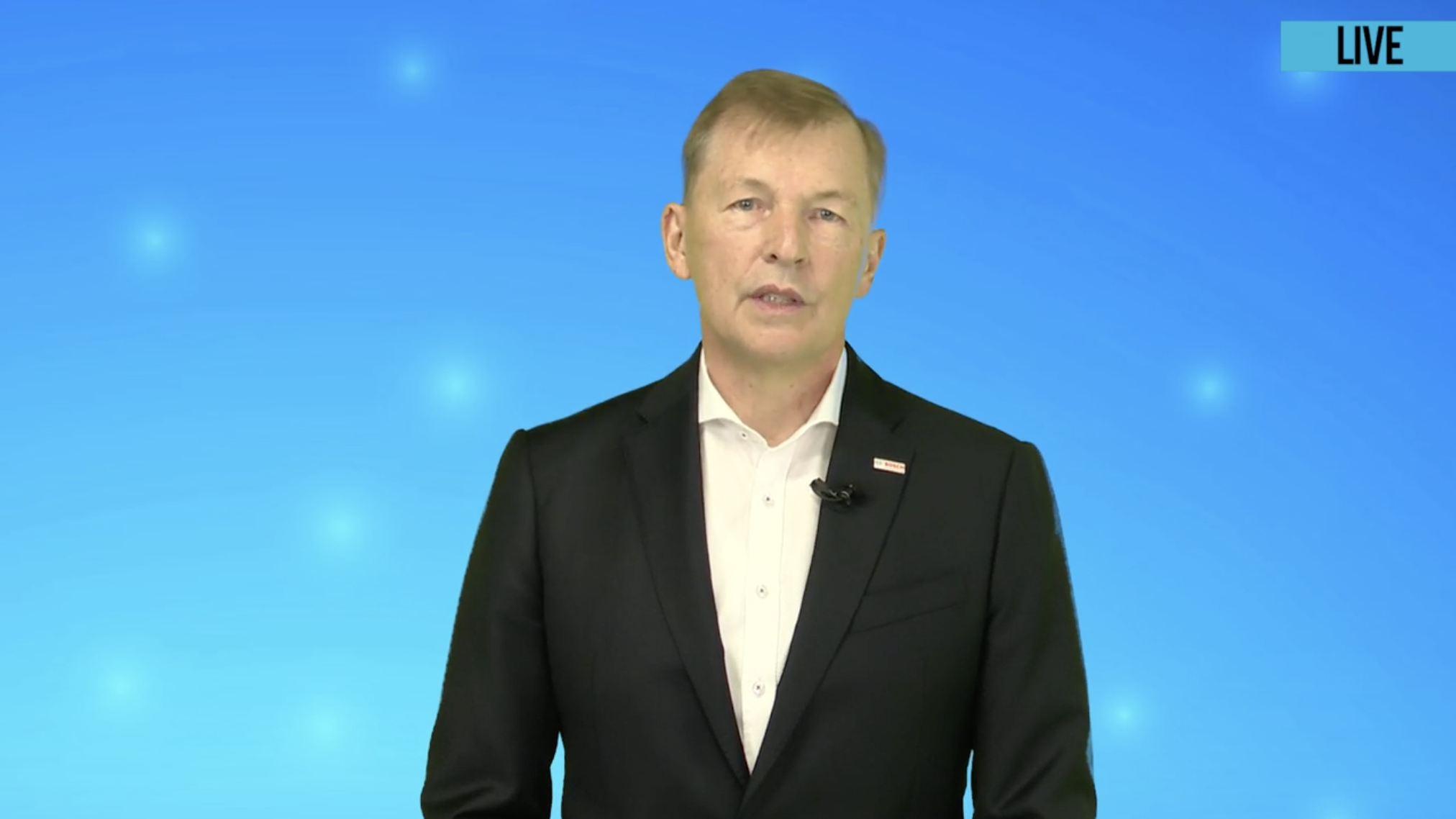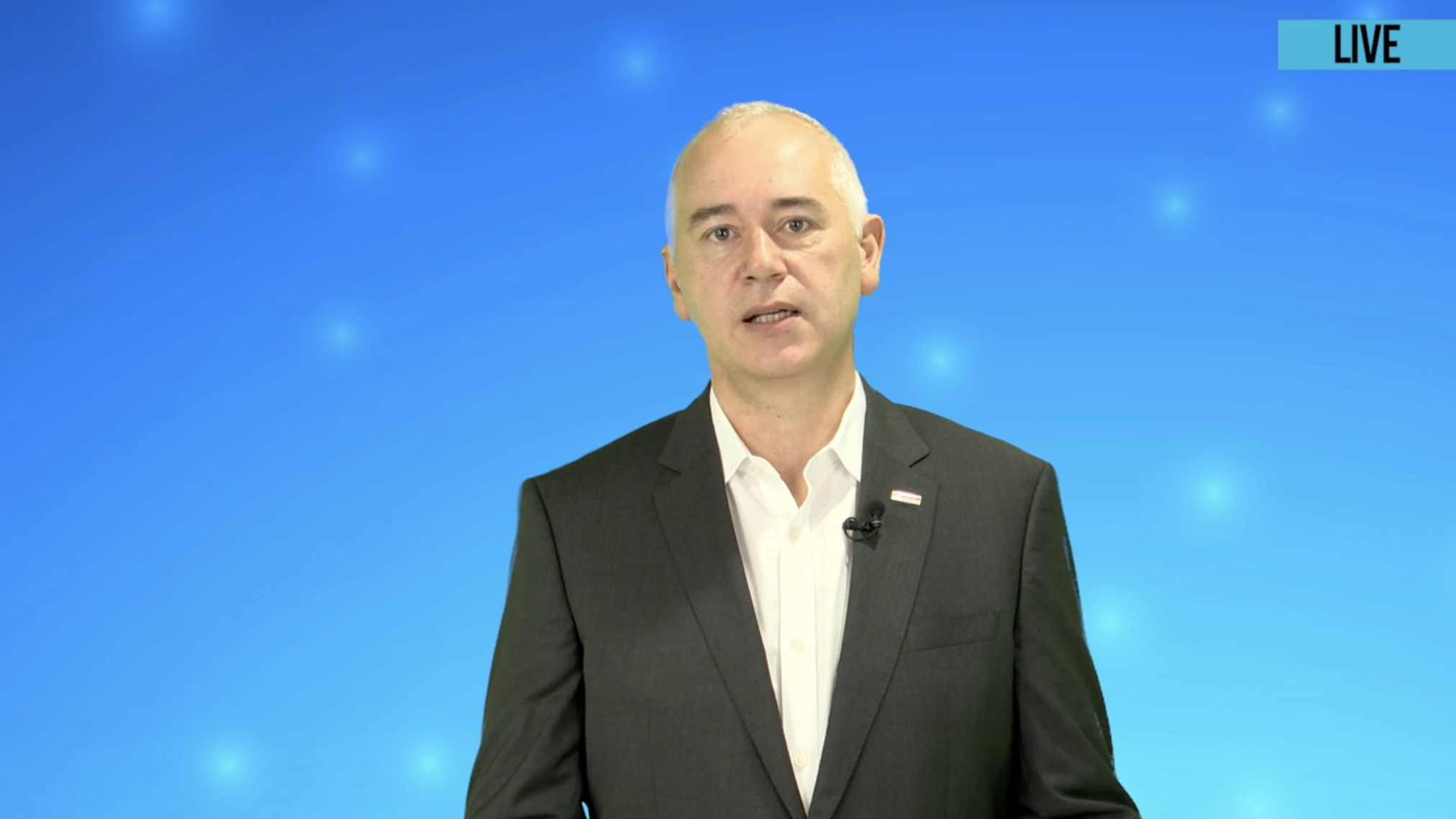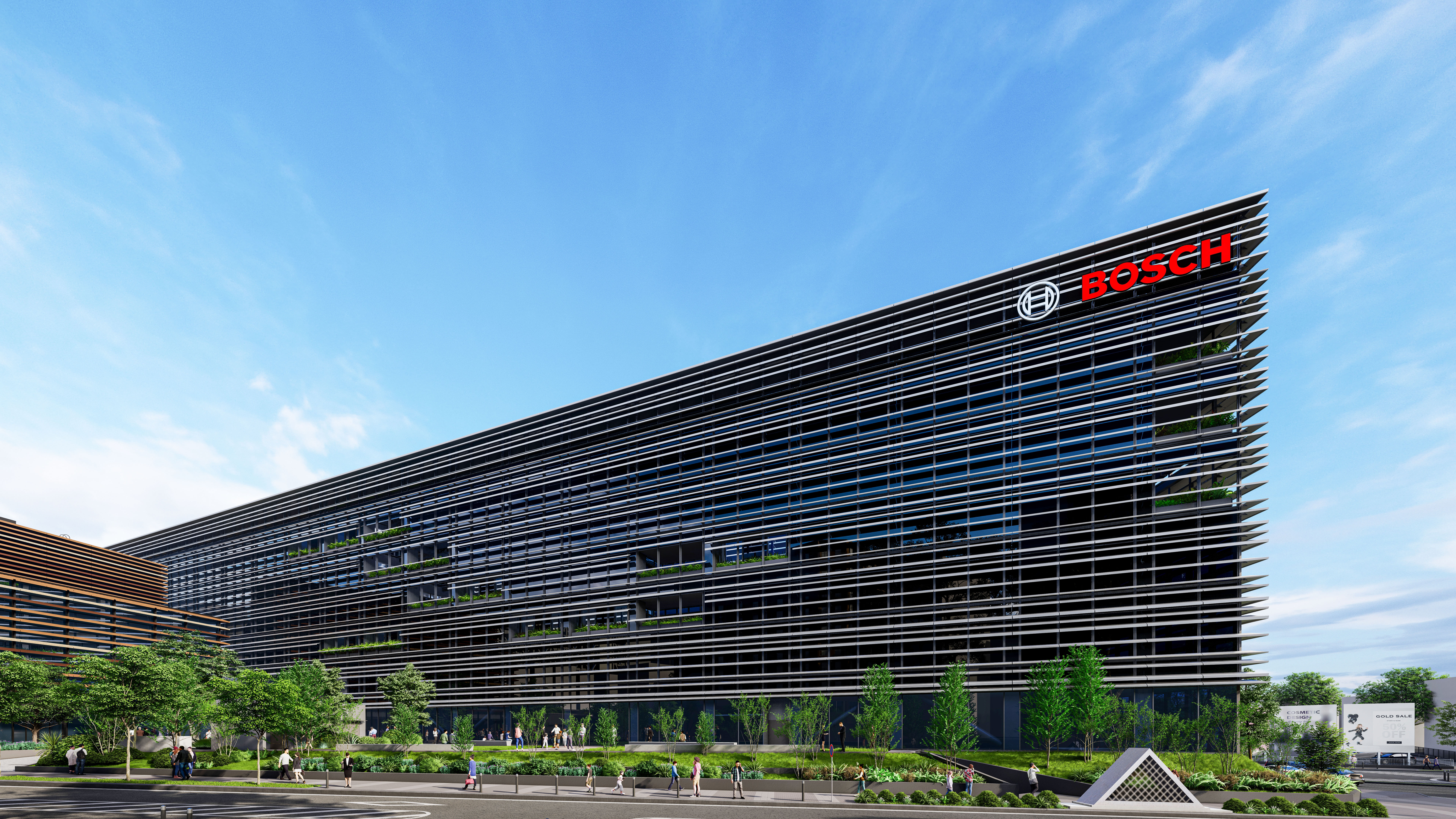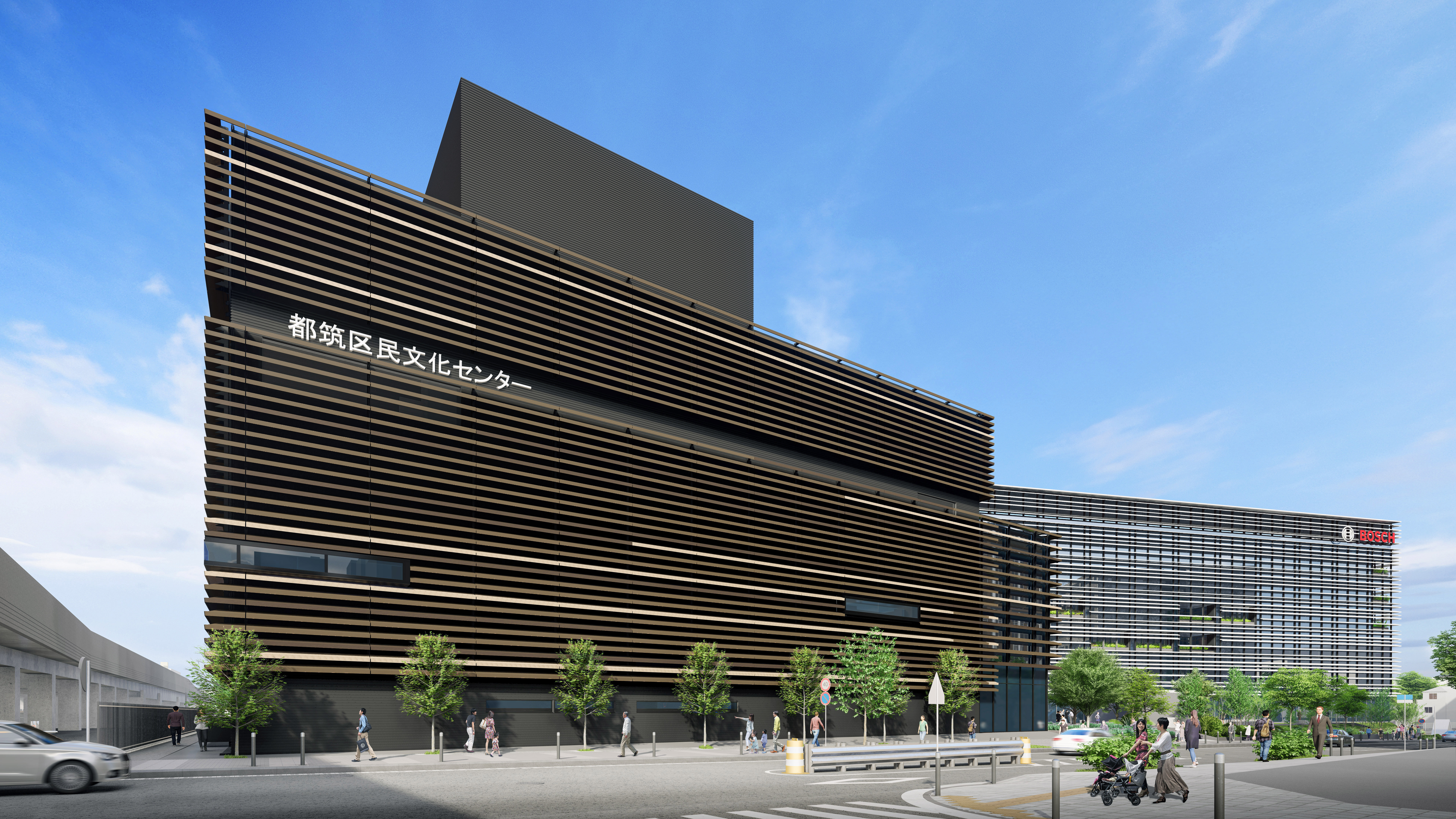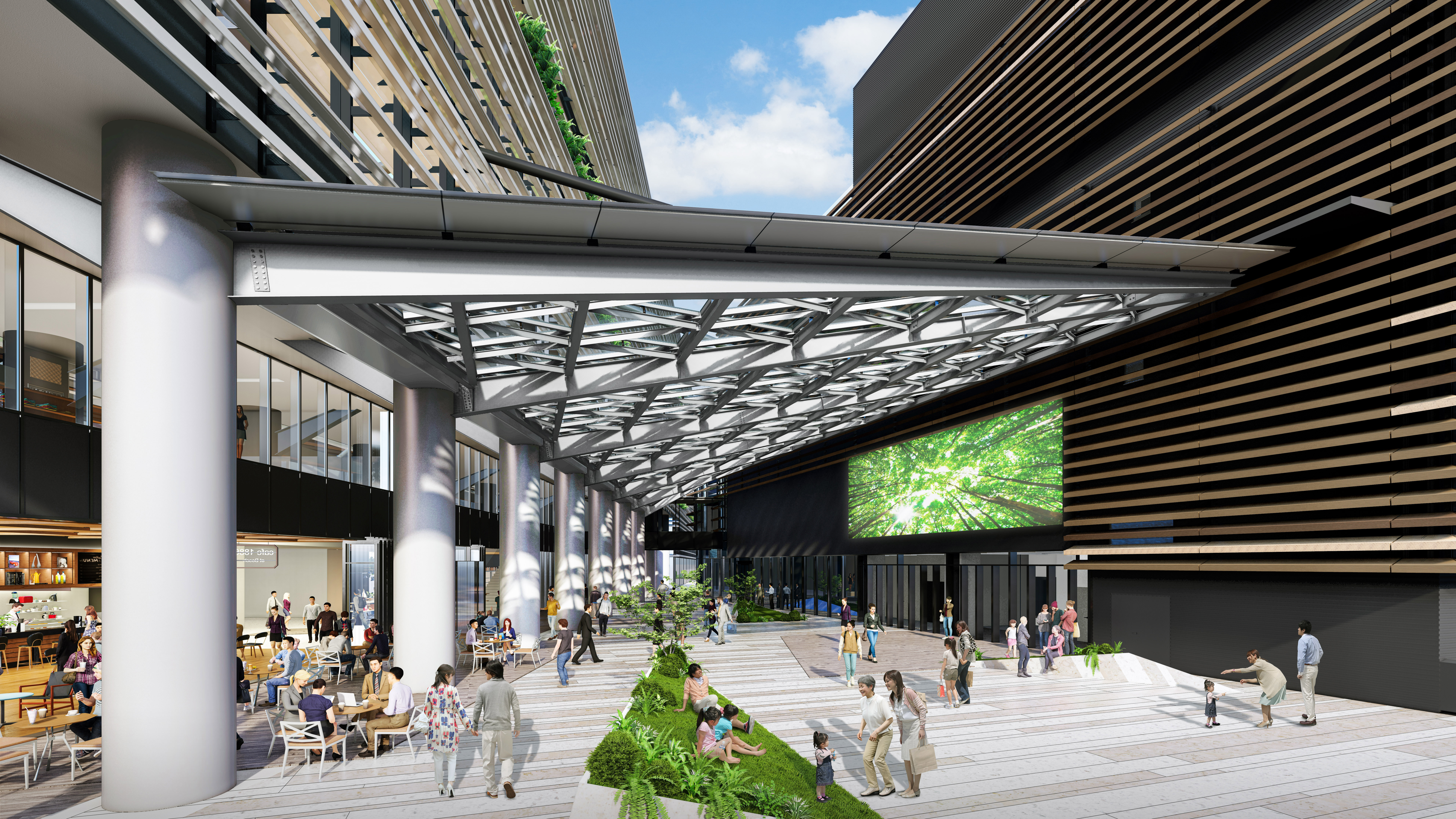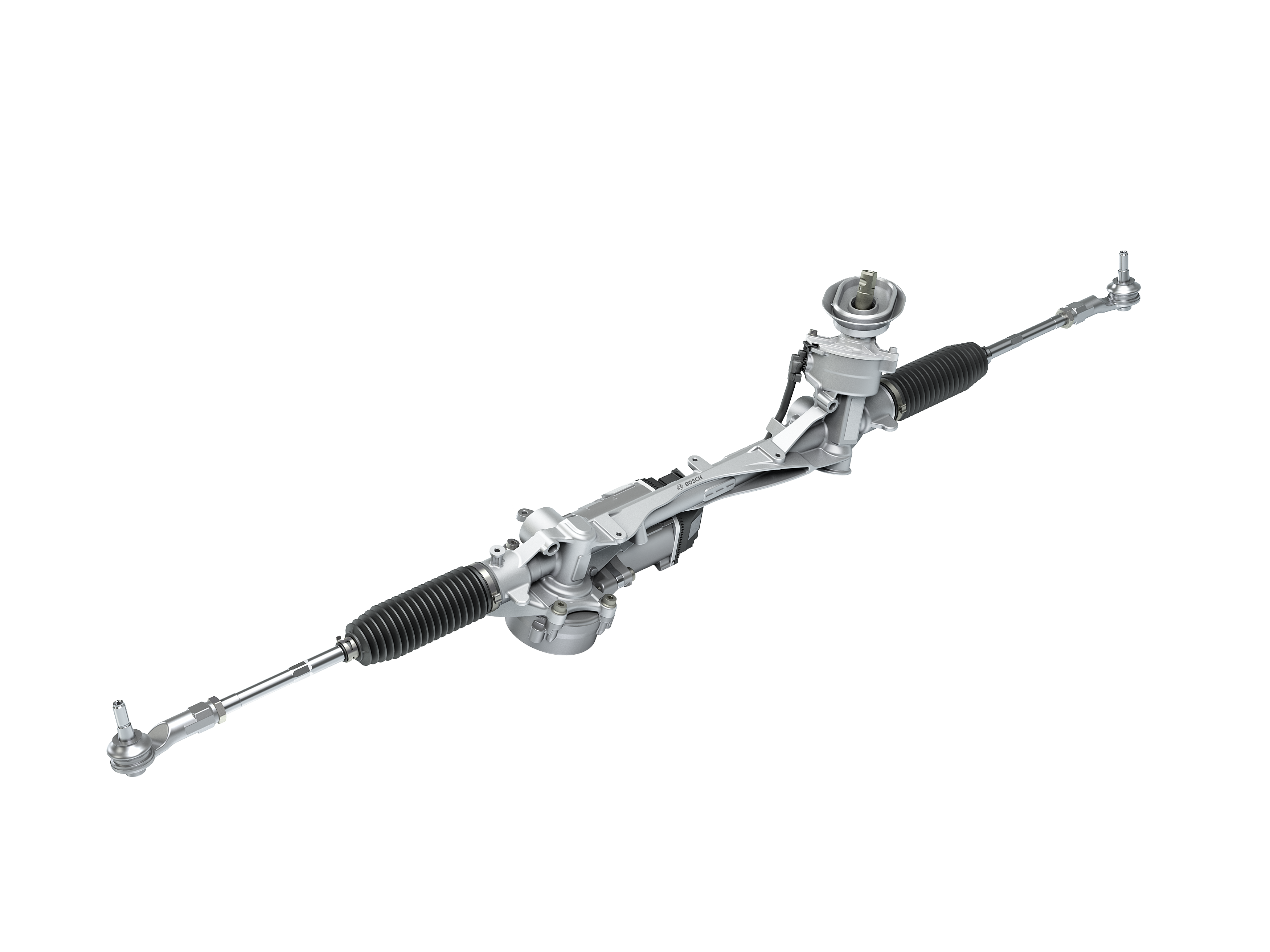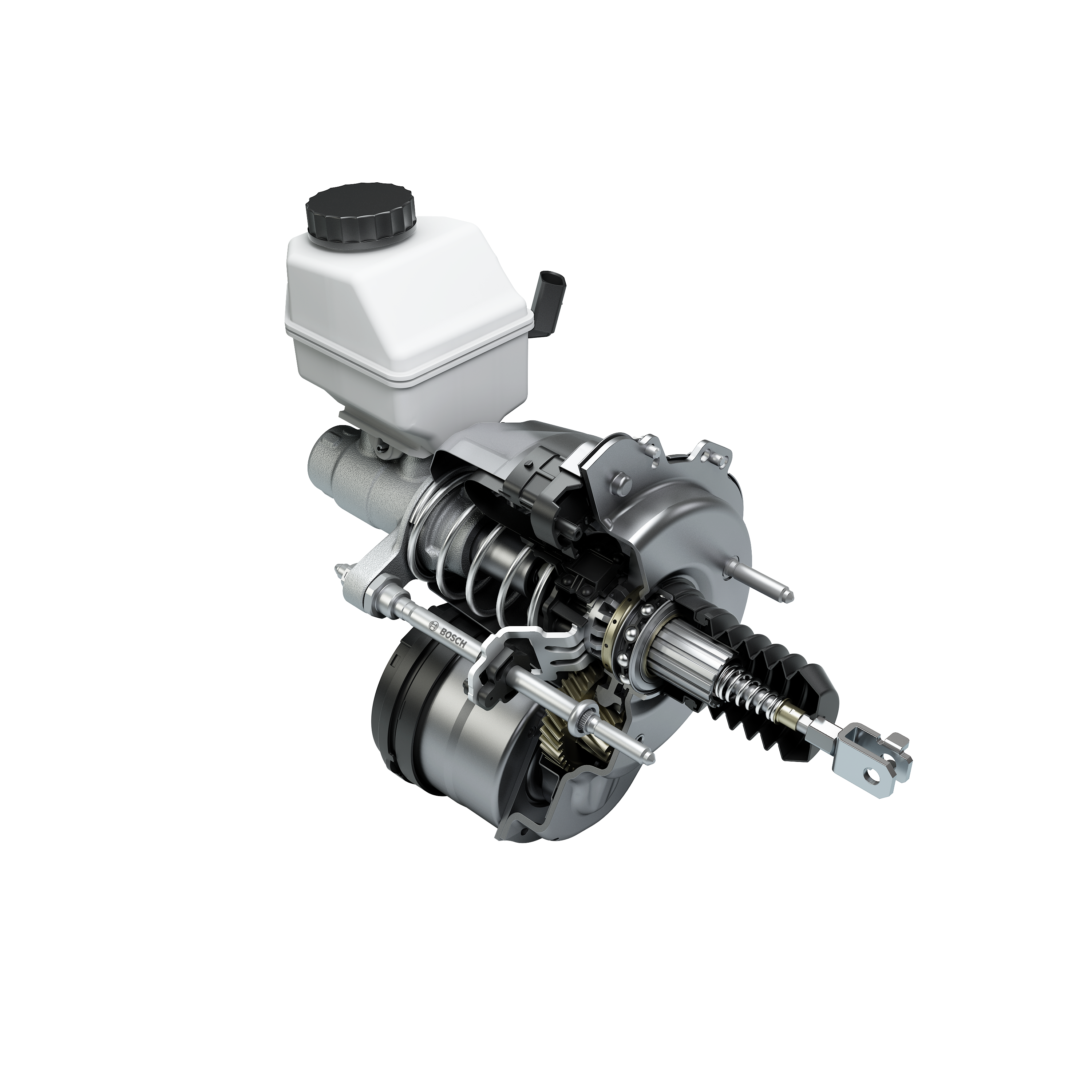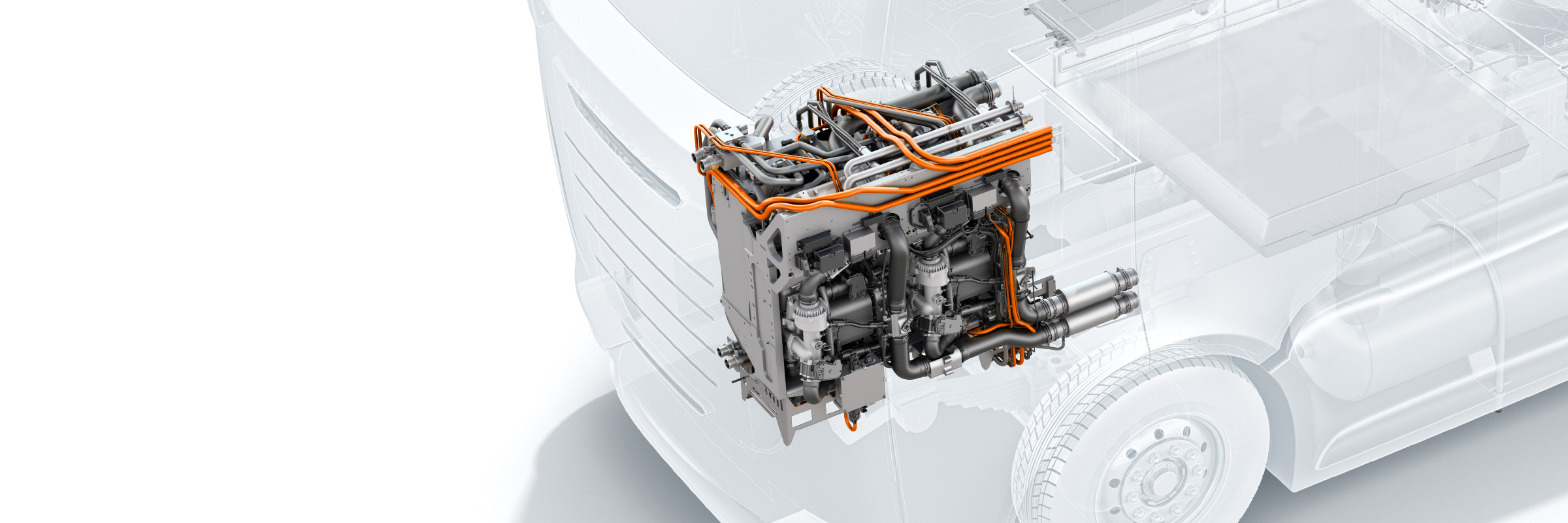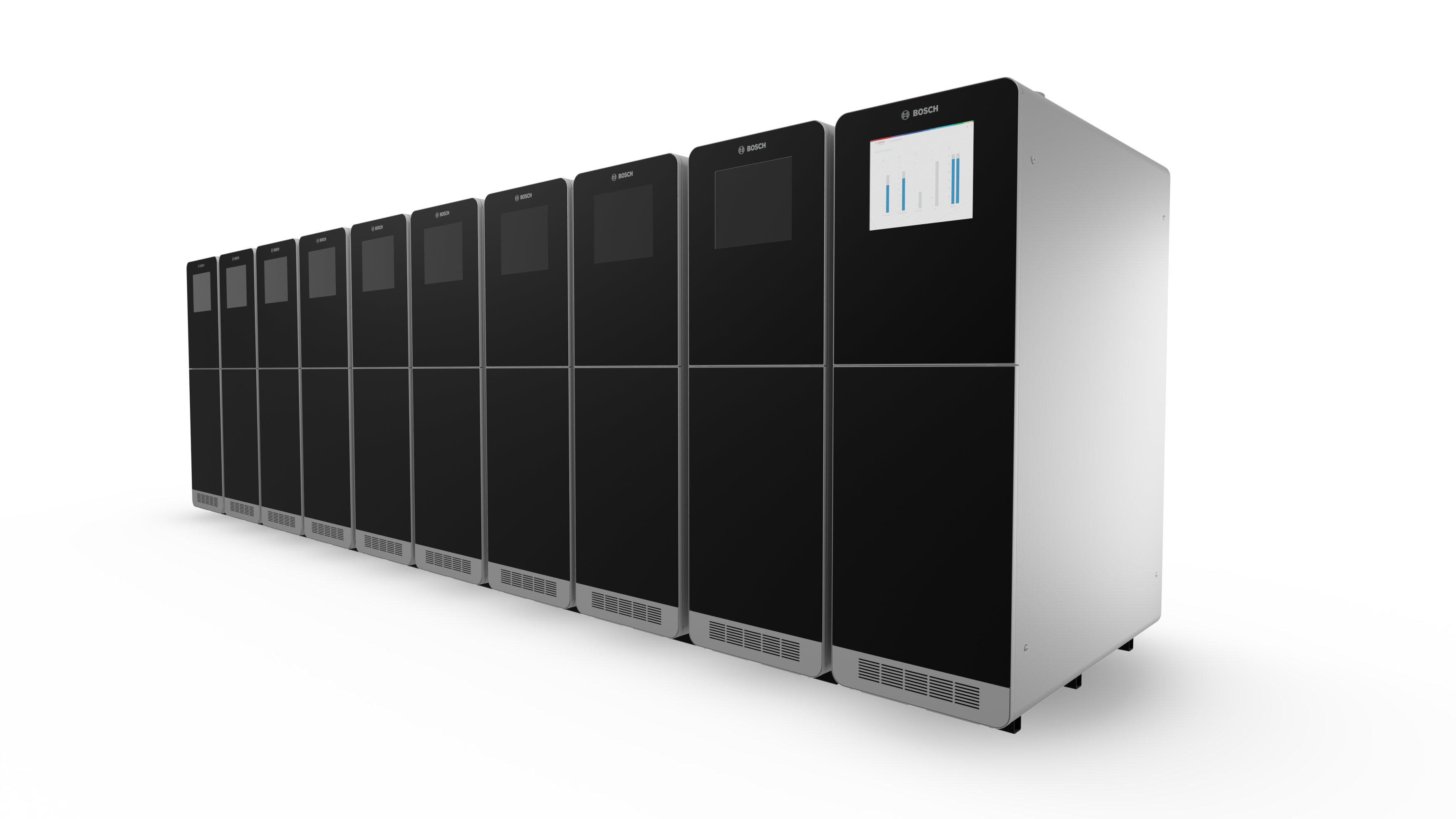Tokyo – Bosch, a leading global supplier of technology and services, ended its 2021 fiscal year with 295 billion yen (2.27 billion euros) in consolidated sales to third parties in Japan. Sales increased by 9.5% compared to the previous year, despite facing multiple challenges such as the COVID-19 pandemic, supply chain bottlenecks, continued global chip shortages and increases in the costs of raw materials and logistics. The number of associates employed at Bosch in Japan stood at around 6,350 as of December 31, 2021.
Bosch has made a solid start to the current fiscal year, with sales for the first quarter of 2022 exceeding those of the previous year. For the year overall, Bosch expects a further increase in sales compared to 2021, while challenges are expected to remain in 2022.
"Several new development and manufacturing projects are currently underway, showing our ongoing commitment to the Japanese market and its bright future," said Klaus Meder, president and representative director of Bosch Corporation, Japan, at the local annual press conference in Tokyo. "The strengthening of our local development and manufacturing capabilities shows our dedication to Japanese automakers. We will continue to carry out our mission of providing local support to Japanese automakers, who supply 30% of global automobile production," Meder added.
Improving development and manufacturing capabilities in Japan
In February 2022, Bosch announced the construction of a new R&D facility and the Tsuzuki Ward Cultural Center (tentative name) in Tsuzuki Ward, Yokohama, to be completed in September 2024. This is a large-scale project with the largest capital investment since Bosch's entry into the Japanese market in 1911 of some 39 billion Japanese yen (approx. 300 million euros). The new facility will bring together the majority of the Bosch divisions and subsidiaries that belong to the Mobility Solutions business sector in Japan. In addition, divisions and group companies of Industrial Technology, Consumer Goods, and Energy and Building Technology business sectors as well as its headquarters function currently located in Shibuya will also move into the new facility. The current R&D facility in Tsuzuki Ward located just about two kilometers from the new facility will continue to be used for powertrain related research and development as well as being home to Bosch's global headquarters for the two-wheeler and powersports business. Over 40% of Bosch's associates in Japan will be brought together at the two facilities in Tsuzuki Ward, Yokohama, with 2,000 at the new facility and 700 at the current facility. This will further strengthen Bosch's R&D operations in Japan by promoting collaboration and cooperation between business units centered on these two bases. The construction project is also the first public-private partnership project for Bosch worldwide. The company will build the Ward Cultural Center on the premises of the facility, based on specifications set by Yokohama City, and promote initiatives to create a lively community.
At the Musashi Plant in Saitama Prefecture, installation of a new assembly line is underway, with plans to begin final assembly of next-generation electric power steering targeting mid-size vehicles within 2022. While electric power steering products have been assembled at factories outside Japan up to now, this is the first time that the company in Japan will be responsible for the entire process from product design to final assembly. Bosch's redundant electric power steering ensures that power assist will continue without a sudden loss in the event of an error in the electrical system. The system is compliant with automated driving SAE level 2 and so forth. Over 50 million passenger cars worldwide are already equipped with Bosch electric power steering, with demand for fail-operational electric power steering expected to increase even further with advances in automation. As of last year, Bosch has already begun series production of electric power steering for SAE level 3 automated driving at plants outside of Japan.
At the Tochigi Plant, the company is making preparations to begin series production of Bosch's electro-mechanical brake booster, the iBooster, and a smaller variant, the iBooster Compact, to meet demand from Japanese automakers for use in compact vehicles within 2022.
By 2025, every Bosch product should either be AI-enabled or manufactured with the help of AI. As part of Bosch's initiatives in Japan to incorporate AI in manufacturing, AI-enhanced image processing was introduced to the inspection process for common-rail products at the Yorii Plant in Saitama Prefecture at the end of 2021. Inspection of common-rail products has generally been carried out by operators. Use of AI-enhanced image processing for the inspection helps eliminate differences in individual judgement among human operators and improves product quality. Using AI for the inspection relieves human operators from routine work, allowing them to focus on high-added-value operations. The company expects to further expand products and plants that incorporate AI image processing in the inspection process in 2022.
Bosch will create a new R&D facility in the home ground of Japanese automakers, who lead the global automotive market, extend its production facilities, and incorporate AI into its inspection processes. Thereby, the company will increase its development and manufacturing capabilities in Japan. Moreover, this will contribute to more tailored solutions, better product adaptation and shorter development lead times.
Initiatives to further improve energy efficiency and reduce carbon footprint at Japanese locations
Bosch plays a pioneering role in climate action. Bosch has achieved Scope 1 and 2 carbon neutrality since the spring of 2020 at all of its over 400 global locations, including in Japan. The company is working to further increase energy efficiency at each location in Japan, with a portion of the energy supply at the Tochigi, Musashi and Tsuchiura plants to be replaced with green hydropower in 2022. The company also plans to install industrial heat pumps at the Tochigi Plant and solar panels at the Higashi-Matsuyama Plant (Saitama Prefecture) within the year.
In addition to addressing Scope 1 and 2 emissions by improving energy efficiency at each site, Bosch is currently working to reduce entire supply chain CO2 emissions across the product life cycle by 15% by 2030 compared to the 2018 baseline (Scope 3). Global efforts to combat climate change are boosting electrification and hydrogen strategies in the mobility field. Bosch is making significant upfront investments in these areas as well as expanding its product portfolio of eMobility and hydrogen applications for mobility. In additional to mobility applications, the company is also developing stationary fuel cells using solid oxide fuel cell (SOFC) technology. Bosch plans to install city gas-based SOFC systems in the R&D facility to be completed in Yokohama City in 2024 for the first time in the Asia Pacific region. When the facility opens in 2024, a SOFC system will be installed to demonstrate its capabilities with a view to expanding up to several hundred kW in 2026.
Further safety improvements brought about by software-focused development
The move toward ever more sophisticated electronics and ever more software is quickly picking up pace. It is expected that the automotive software market will be worth well over 200 billion euros by 2030 – a threefold increase from 2020. Bosch is also focusing on development in this market and expects double-digit growth through 2030.
As one example of software development, Bosch is currently developing vehicle dynamics control 2.0 software, which works with next-generation electronic stability program (ESP®) and the integrated power brake. The company started the world's first series production of ESP® in 1995, and has since made significant improvements leading to the development of vehicle dynamics control 2.0 software. It uses vehicle dynamics sensor information to predict the danger of car skidding, intervening in advance. As a result, drivers benefit from a smoother driving experience while maintaining full control of the vehicle, contributing to better vehicle safety, comfort, and agility. This technology makes it possible to integrate various actuators used in vehicle control such as braking, chassis, steering, and powertrain systems, and in the future it will make the best possible use of by-wire systems. Coordinated control of steering and braking, for example, allows for smooth cornering and reduced braking distance on slippery surfaces. Vehicle dynamics control can also be customized to the desired driving feeling of each automaker. Vehicle dynamics control 2.0 is compatible with all types of vehicles, from compact cars to premium cars, and light commercial vehicles, including manual and automated driving modes. Series production of the next generation ESP® is scheduled to begin in 2023, with plans to move ahead at the Tochigi Plant in Japan.
Globally, Bosch has been increasing the number of software engineers by 10% annually over the past few years to further strengthen its software development capabilities. In Japan, the Cross Domain Computing Solutions division, which pools its software and electronics expertise, plans to recruit more than 250 software engineers for the division alone from within and outside the automotive industry over the next two years.
Supporting associates in pursuing their career paths and flexible work styles
In recent years, the overall automotive industry has been facing a period of major structural change. To respond to this rapidly changing environment, associates must acquire new expertise and knowledge in order to secure the company's competitive edge. Bosch is continuously investing in associate training and re-skilling programs, investing one billion euros over the past five years. In Japan, Bosch's human resources department and the Bosch Training Center, in coordination with the individual business divisions, are focused on providing re-skilling programs to help associates pursue their desired career paths. In particular, the Cross Domain Computing Solutions division is offering programs in collaboration with the Bosch Training Center for associates who wish to attempt new challenges in this field. The programs offer an excellent opportunity to acquire new skills and knowledge that are currently or soon to be required for software development.
Bosch is also working to create an environment that encourages diverse and flexible work styles among its associates. In the new normal, the company is driving hybrid working models that offer flexible work arrangements and focus on performance instead of presence, under the concept of Smart Work. Bosch places trust between employees and management as the guiding principle to bring out the best in all individuals to strengthen the company.
Furthermore, in April 2022, Bosch introduced the Short Work Regular Employee System for associates in Japan who have difficulty working full time due to childcare, nursing care, illness or injury, or who wish to work shorter hours for schooling or other personal development. Associates are required to work at least 20 hours per week and at least three days per week, and can choose from several working options, such as three days per week (eight hours per day), four days per week (six hours per day), and five days per week (four hours per day).
Bosch Group: outlook for 2022 and strategic course
In 2021, Bosch achieved significant growth in sales and result despite a difficult environment. In the first quarter of 2022, the sales revenue of the supplier of technology and services rose 5.2 percent. For the year as a whole, Bosch expects sales to grow more than 6 percent, and to achieve an EBIT margin in the range of 3 to 4 percent – and this despite the likelihood of considerable burdens, especially due to rising costs for energy, raw materials, and logistics. "The successful outcome of the 2021 business year bolsters our confidence as we tackle the challenging environment of the current year," said Dr. Stefan Hartung, chairman of the board of management of Robert Bosch GmbH. One of the considerable uncertainties is the war in Ukraine and all its implications. In his view, the current situation highlights the pressure on policymakers and society to become less dependent on fossil fuels and to vigorously pursue the development of new sources of energy. For this reason, he said, the Bosch Group is systematically continuing its efforts to mitigate global warming, despite the challenging economic environment. In addition, Hartung announced Bosch will be investing some three billion euros over three years in climate-neutral technology such as electrification and hydrogen.
He believes electrification is the fastest route to climate neutrality, provided it is based on green electricity. That is why Bosch is driving sustainable mobility forward: in 2021, the company's orders relating to electromobility exceeded ten billion euros for the first time.
But Hartung also stressed that hydrogen is needed as well. "Industrial policy should focus on making all sectors of the economy hydrogen-ready," he said. In the interest of effective climate action, Bosch is also entering the components business for hydrogen electrolysis. The company plans to invest nearly 500 million euros in this new area of business by the end of the decade, half of it by the time of market launch, which is planned for 2025. At the same time, the Bosch chairman announced that, over the next three years, the company will be investing another ten billion euros in digitally transforming its business. "Digitalization also has a special role to play in sustainability – and our solutions start from this premise," Hartung said. This year alone, moreover, Bosch plans to take on 10,000 new software engineers worldwide.
Contact persons for press inquiries:
Kiyohiko Sumiya
Aiko Furuichi
phone:+81-3-5485-3393
Annual press conference 2022 in Japan
Bosch records 9.5% sales increase over the previous year
2022/06/16






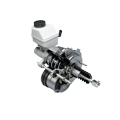


Bosch in Japan is currently represented in the country by Bosch Corporation, Bosch Rexroth Corporation and other affiliates. Bosch Corporation is responsible for the development, manufacturing, sales and services of automotive original equipment, automotive aftermarket products and power tools. Bosch Engineering K.K. provides engineering services, such as development and application for automotive systems. ETAS K.K. develops and provides engineering of development support tools of electrical control units. Bosch Rexroth Corporation develops and manufactures hydraulics, FA module components and other systems which contribute to industrial technologies. Bosch Security Systems Ltd. provides security and communication products and solutions to help secure the safety of lives, buildings and properties, and is also a supplier of professional sound systems. In 2021, Bosch Japan achieved sales to third parties of some 295 billion yen and employed approximately 6,350 associates.
Additional information is available online at
www.bosch.co.jp Bosch Japan Website (Japanese)
https://twitter.com/Boschjapan Bosch Japan Twitter (Japanese)
www.facebook.com/bosch.co.jp Bosch Japan facebook (Japanese and English)
https://www.youtube.com/boschjp Bosch Japan Youtube (Japanese)
The Bosch Group is a leading global supplier of technology and services. It employs roughly 402,600 associates worldwide (as of December 31, 2021). According to preliminary figures, the company generated sales of 78.7 billion euros in 2021. Its operations are divided into four business sectors: Mobility Solutions, Industrial Technology, Consumer Goods, and Energy and Building Technology. As a leading IoT provider, Bosch offers innovative solutions for smart homes, Industry 4.0, and connected mobility. Bosch is pursuing a vision of mobility that is sustainable, safe, and exciting. It uses its expertise in sensor technology, software, and services, as well as its own IoT cloud, to offer its customers connected, cross-domain solutions from a single source. The Bosch Group's strategic objective is to facilitate connected living with products and solutions that either contain artificial intelligence (AI) or have been developed or manufactured with its help. Bosch improves quality of life worldwide with products and services that are innovative and spark enthusiasm. In short, Bosch creates technology that is "Invented for life." The Bosch Group comprises Robert Bosch GmbH and its roughly 440 subsidiary and regional companies in some 60 countries. Including sales and service partners, Bosch's global manufacturing, engineering, and sales network covers nearly every country in the world. With its more than 400 locations worldwide, the Bosch Group has been carbon neutral since the first quarter of 2020. The basis for the company's future growth is its innovative strength. At 128 locations across the globe, Bosch employs some 76,100 associates in research and development, of which nearly 38,000 are software engineers.
Additional information is available online at www.bosch.com, www.iot.bosch.com, www.bosch-press.com, and twitter.com/BoschPresse.
Note: one Euro = 129.8855 JPY (Calculated using the average rate in 2021)
Additional information is available online at
www.bosch.co.jp Bosch Japan Website (Japanese)
https://twitter.com/Boschjapan Bosch Japan Twitter (Japanese)
www.facebook.com/bosch.co.jp Bosch Japan facebook (Japanese and English)
https://www.youtube.com/boschjp Bosch Japan Youtube (Japanese)
The Bosch Group is a leading global supplier of technology and services. It employs roughly 402,600 associates worldwide (as of December 31, 2021). According to preliminary figures, the company generated sales of 78.7 billion euros in 2021. Its operations are divided into four business sectors: Mobility Solutions, Industrial Technology, Consumer Goods, and Energy and Building Technology. As a leading IoT provider, Bosch offers innovative solutions for smart homes, Industry 4.0, and connected mobility. Bosch is pursuing a vision of mobility that is sustainable, safe, and exciting. It uses its expertise in sensor technology, software, and services, as well as its own IoT cloud, to offer its customers connected, cross-domain solutions from a single source. The Bosch Group's strategic objective is to facilitate connected living with products and solutions that either contain artificial intelligence (AI) or have been developed or manufactured with its help. Bosch improves quality of life worldwide with products and services that are innovative and spark enthusiasm. In short, Bosch creates technology that is "Invented for life." The Bosch Group comprises Robert Bosch GmbH and its roughly 440 subsidiary and regional companies in some 60 countries. Including sales and service partners, Bosch's global manufacturing, engineering, and sales network covers nearly every country in the world. With its more than 400 locations worldwide, the Bosch Group has been carbon neutral since the first quarter of 2020. The basis for the company's future growth is its innovative strength. At 128 locations across the globe, Bosch employs some 76,100 associates in research and development, of which nearly 38,000 are software engineers.
Additional information is available online at www.bosch.com, www.iot.bosch.com, www.bosch-press.com, and twitter.com/BoschPresse.
Note: one Euro = 129.8855 JPY (Calculated using the average rate in 2021)
